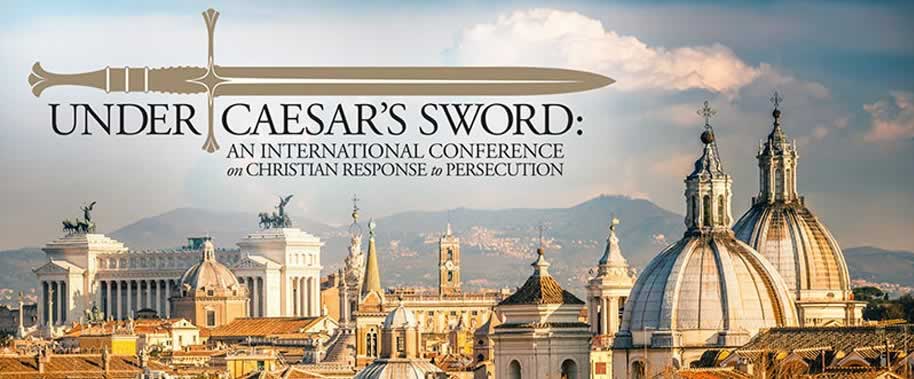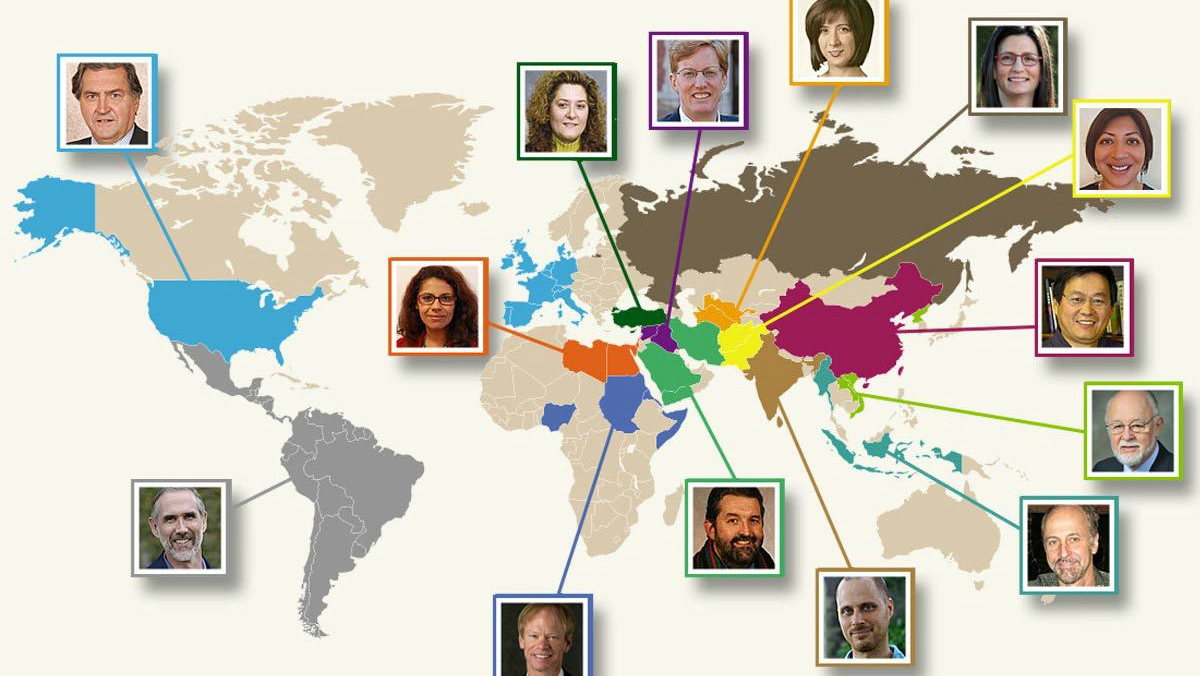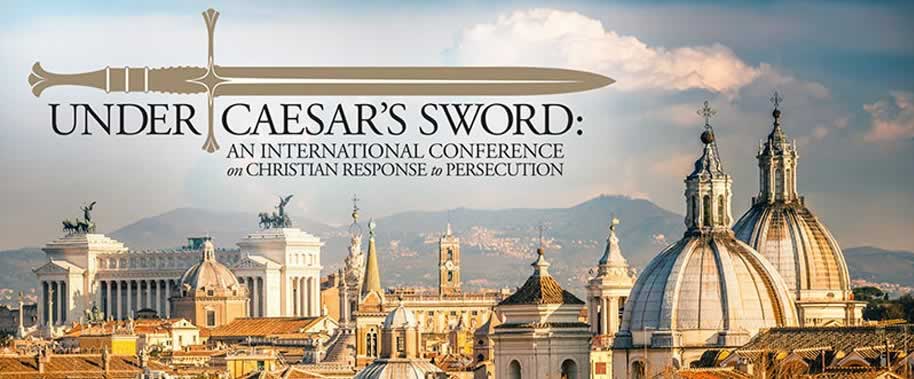From demolished church crosses in China to beheaded believers in Libya, the persecution of Christians regularly drew international media attention this past year.
It also caught the attention of researchers, who spent three years and $1.1 million compiling "the world’s first systematic global investigation into the responses of Christian communities to the violation of their religious freedom."
Last week in Rome, scholars—gathered by the University of Notre Dame’s Center for Civil and Human Rights and the Religious Freedom Project at Georgetown University’s Berkley Center for Religion, Peace, and World Affairs—presented their findings at the Under Caesar’s Sword conference.

“By now, the scale of Christian persecution has been amply documented,” stated Thomas Farr, director of the Religious Freedom Project. “But nobody has examined systematically and globally what these communities do when they are under massive repression. Do they flee? Resist? Work with outsiders to build safe havens? Accommodate? Forgive? Or what?”
That depends on the circumstances Christians face, researchers found, based on studying 100 Christian communities in more than 30 countries. (Crux noted the highlights, as did Twitter.)
Christians threatened by Boko Haram attacks in Africa or severe state pressure in Iran and Saudi Arabia flee. Those living under unstable or unfriendly governments, such as in Egypt or Afghanistan, try to make themselves as invisible as possible. In more stable nations, such as Pakistan or Indonesia, Christians are advocating for themselves politically and socially.
“There are tensions between day-to-day immediate coping strategies and ideas of long-term survival,” reported Mariz Tadros, a fellow at the Institute of Development Studies at Sussex University. “In Gaza, this cognitive fear [of ISIS] has meant that they see their survival as being contingent on their immigration. This is at odds with the church leadership who see that uprootedness is not a survival option; to the contrary, perseverance is the only way to preserve the Christian heritage on those lands.”
Perseverance is easier when persecution isn’t life-threatening.
In Iran, about 10 percent of Christians suffer serious indignities ranging from imprisonments to lashings, reported Christian van Gorder, a Baylor University religion professor. While some Christians flee, others stay, cautiously meeting with each other and accepting their second-class status “without question.”
Those who stay frame their suffering theologically.
“These Christians take consolation in Christ’s words: ‘I will build my church, and the gates of hell shall not prevail against it’ (Matthew 16:18, ESV),” he wrote. “They have no other choice but to rely on prayer and the power of the Holy Spirit.”
Evangelical Christians in Vietnam and Laos, who have faced government campaigns of “eradication” and “containment,” expect persecution, reported Reg Reimer, a former missionary and longtime advocate for religious freedom in Vietnam. “Evangelicals consider this persecution normative, an idea they get from their Bibles, from pastoral teaching, and from the experiences of others like them. The result, ironically, is often more attraction to Christianity rather than less, though some recant under strong pressure.”
Indeed, China’s church grew three times during the Cultural Revolution, when no churches were open and church leaders were imprisoned, wrote Fenggang Yang, director of the Center on Religion and Chinese Society at Purdue University.
Some responses seem to work better than others. Fighting the government, like some Copts did alongside Muslim protesters against Egypt’s Muslim Brotherhood in June 2013, didn’t bring about the safety they desired. When Christian churches, homes, and schools were burned in August 2013, Christians documented the damage but didn’t retaliate, Tadros wrote.
Similarly, although some Christian groups have armed themselves against Boko Haram in northeastern Nigeria, most have chosen not to fight back. Instead, one strategy has been to ask Muslim leaders and government officials for help, reported Robert Dowd, political science professor at the University of Notre Dame.
Asking for help from the religion in power, if possible, may be the best bet for persecuted Christians.
“Preliminary evidence suggests that Christian leaders’ efforts to reach out to Muslim religious leaders have been effective in providing Christians in certain areas of Nigeria and Kenya with greater security,” Dowd wrote. “In Nigeria in particular, there are numerous examples of Muslims hiding and defending Christians from Boko Haram militants.”
In Indonesia, many Muslim citizens and organizations are committed to citizen equality and religious freedom, and Christian leaders are reaching out to them, according to Robert Hefner, director of the Institute on Culture, Religion, and World Affairs at Boston University.
And in India and Sri Lanka, Christians have increasingly cooperated with those of other faiths, in part to show that their primary aim is not conversion, wrote Butler University religion professor Chad Bauman and University of Madras religion professor James Ponniah.
In some countries that fear conversions away from the majority religion, church leaders are also working to expand and reframe Christianity.
In Pakistan, Christians are joining with Muslims to pursue common goals: safeguarding young women, promoting education, and obtaining clean water and sanitation, according to the Berkley Center’s Sara Singha.
In Russia, feeding the poor, developing playgrounds, and running drug rehabilitation programs allow churches to serve society, reported Karrie Koesel, a Notre Dame political science professor. At the same time, those actions attract members to strengthen churches internally, as well as function as good public relations.
“It is an attempt to recast non-Orthodox Christians as valuable and productive Russian citizens, and to reframe them as local, loyal, and legitimate,” she wrote.
Even in the US and Western Europe, where persecution stems from a emphasis on human autonomy and exclusion of religion from the public arena, cooperation with other religious (or non-religious) organizations on general issues has been a top strategy, reported Paul Marshall, a senior fellow at the Hudson Institute's Center for Religious Freedom.
Individually, Christian responses to persecution depend not only on what they’re facing, but on their age, gender, location, and relationship to the church or broader society, Tadros wrote. Communally, persecution responses also depend on the size and cohesion of the Christian community and the availability of resources.
“The smaller the number of Christians in a community, the more likely they are to feel isolated and cope via assimilation,” she wrote.
Smaller groups are more vulnerable, which is why leaving is not the best longterm solution. But sometimes it’s the only way to survive.
“In a region where all peoples, Muslim and Christian, are experiencing extreme insecurity, the choices that Christians make in order to cope with the current situation needs to be understood through the prism of choosing the least detrimental options,” Tadros wrote. “Such options are often neither optimum nor necessarily rights-enhancing, but represent perceptions of what would minimize encroachments and maximize survival whether in the immediate or long run.”
The research was funded by a grant from the Templeton Religion Trust.










